The management of ovarian cancer remains challenging within health-care systems worldwide. Recently, clinical and translational research on ovarian cancer has led to promising advances that have improved the survival outcomes of women diagnosed with this aggressive gynecologic cancer. These developments include various therapeutics based on precision medicine approaches, such as PARP inhibitors and antibody-drug conjugates.1,2
Although the remarkable progress in conducting research that impacts the care of patients with ovarian cancer has largely been attributed to high-income countries, low- and middle-income countries still encounter several challenges.3 They encompass limited funding resources and insufficient research training. For instance, few African publications on ovarian cancer within the scientific community have been observed, despite the considerable burden of this cancer in the general population.3
Ovarian Cancer in Morocco
In Morocco, the most recent GLOBOCAN report showed that ovarian cancer stands as the third most incident and deadly gynecologic cancer after breast and cervical cancers.4 Despite these alarming findings, ovarian cancer in Morocco is considerably neglected compared with other types of cancer when it comes to accessing innovative treatments, patient advocacy, governmental support, the number of supportive associations, and research.5,6
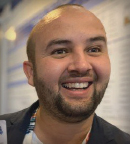
Khalid El Bairi, MD
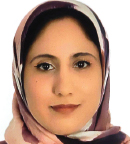
Ikram Kharmach, MD

Fatima Rezzoug, MD
In fact, our bibliometric study of Moroccan published ovarian cancer science demonstrated the number of articles per each newly diagnosed ovarian cancer case, gross domestic product per capita and per million, was very low.5 The available publications were also dominated by case reports on rare tumors, but the original studies that impact evidence-based practice remain limited and did not exceed 10.5 Remarkably, female scientists were underrepresented and less prominent as leading authors in these publications.5
Novel Moroccan Initiative
To tackle this issue, our team developed the OVANORDEST initiative (short for “OVAire dans le NORD-EST,” which translates to ovarian cancer in the North-East of Morocco).6 This project was conceived as a three-phase strategy aimed at boosting both meta-research and original research efforts related to ovarian cancer (Figure 1). Furthermore, the initiative emphasized the training of the local workforce to actively participate in clinical research.
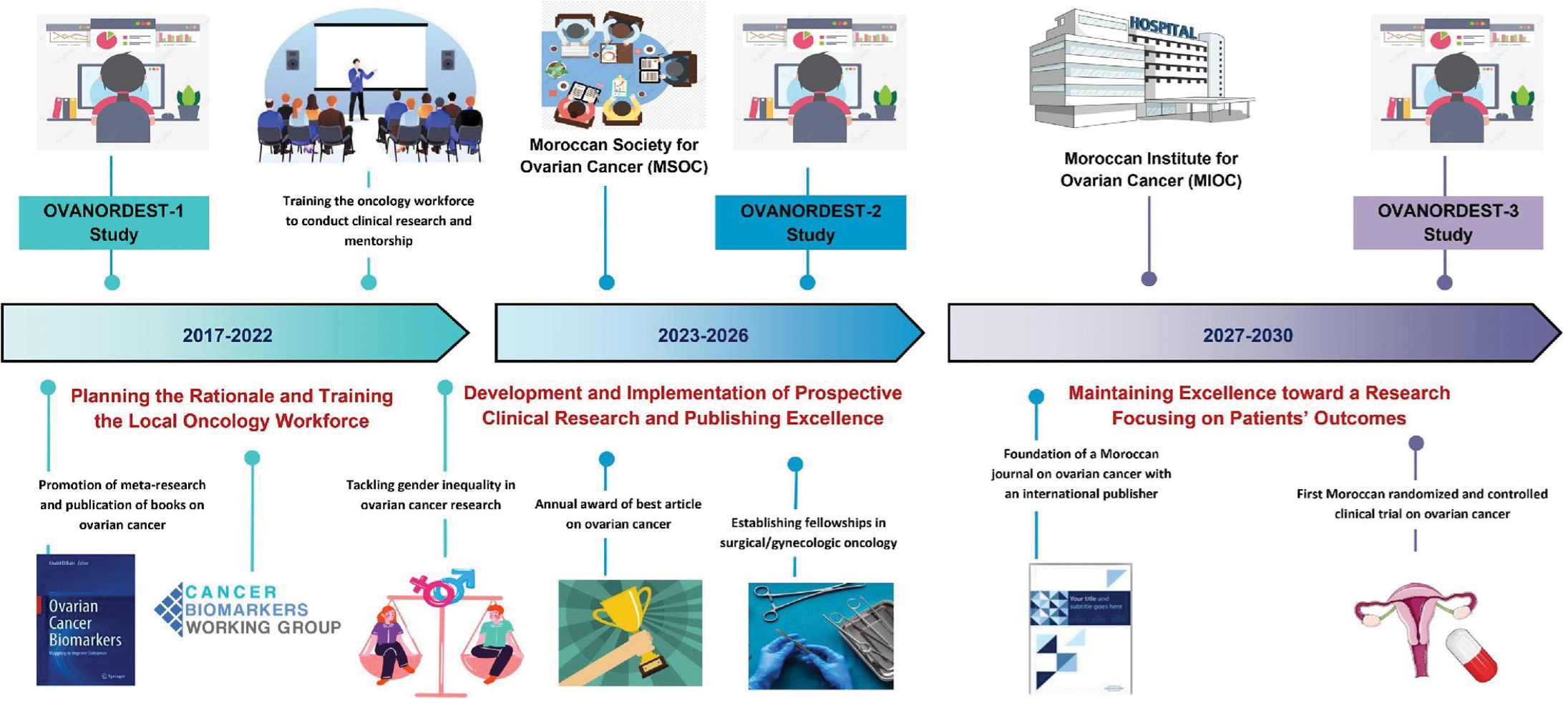
FIGURE 1: Overview of OVANORDEST project. Under CC.BY 4.0 license, reproduced from El Bairi K et al: Gynecol Oncol Rep 37:100857, 2021.
Steps Toward Gender Equity in Africa
A priority aim for our initiative was to “improve the role of women oncologists in clinical research on ovarian cancer to limit gender inequality and increase the visibility and engagement of junior female researchers on ovarian cancer.”6 To implement this, the database from our real-world study, which encompasses a significant number of variables concerning clinicopathologic, survival, and biomarker data, was shared with young female oncologists (Dr. Ikram Kharmach and Dr. Fatima Rezzoug, the second and third authors of this article, see Figures 2 and 3). This mentorship aimed to investigate research topics related to ovarian cancer in underresourced settings and present the findings at international oncology meetings. Additionally, the young oncologists benefited from methodologic training to perform survival and biomarker analyses, thereby contributing to their residency program with a research component.
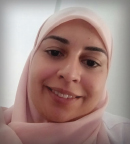
Ouissam Al Jarroudi, MD
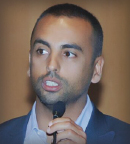
Said Afqir, MD
The essence of this initiative highlights the potential for advancing research on neglected cancers such as ovarian cancer while simultaneously promoting women’s representation in oncology. Thus, we attempted to make significant steps toward gender equity in Morocco. Although our primary goal was to improve research on ovarian cancer, other missions such as training early-career oncologists to conduct clinical research and empowering female scientists within the oncology field emerged as equally important, alongside the improvement of patient care to catalyze a change in Africa.
Historically, women have been underrepresented in leadership positions within the medical field.7 In sub-Saharan Africa, marked country-by-country differences have been found in article authorships, along with substantial gender inequities in prestigious positions within academic journals.8,9 Gender inequity remains a widespread issue, especially within male-dominant areas of the globe.
We presented a very promising study10 during ASCO Breakthrough 2023, which mapped gender disparities in North African oncology; it revealed that women improved their position as senior authors during the past 5 years, even during the COVID-19 pandemic.10 Moreover, their original contributions as lead authors had more transparent disclosure of funding sources as compared with male authors. However, their place as principal investigators was still underrepresented, and they face a lack of funding and limited engagement in international collaborations.10
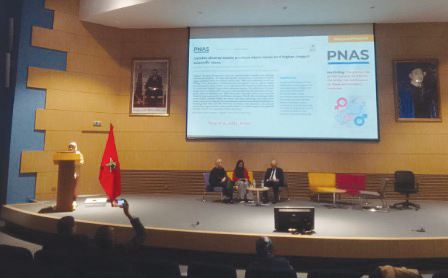
FIGURE 2: Dr. Ikram Kharmach, MD, resident in medical oncology in the Department of Medical Oncology at Mohammed VI University Hospital, Oujda, Morocco, who benefited from mentorship, presented her research at the 12th Annual Meeting of the Middle Eastern Association for Cancer Research in Morocco.
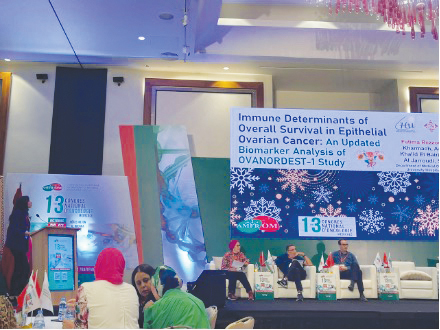
FIGURE 3: Dr. Fatima Rezzoug, resident in medical oncology in the Department of Medical Oncology at Mohammed VI University Hospital, Oujda, Morocco, who benefited from mentorship, presented her research at the 30th Annual Meeting of the Moroccan Cancer Society.
Our initiative has challenged traditional norms by actively engaging and empowering female scientists by supporting them through mentorship and conducting research on this global issue. This approach recognizes the significant potential of women in science and also paves the way for increased representation and leadership roles within oncology to inspire and mentor the next generation of female oncologists—not only in Morocco but also in other regions facing similar challenges.
Finally, our unfunded OVANORDEST-1 study serves to demonstrate to the oncology community that individual initiatives can actively contribute to transformative research in environments characterized by limited resources. Improving research outputs that will positively influence our daily practices and ultimately save the lives of patients with ovarian cancer in Morocco is a lengthy journey. We are hopeful that the upcoming launch of the OVANORDEST-2 prospective study later this year will yield more significant findings to improve survival for women diagnosed with this neglected gynecologic cancer in our underresourced setting.
DISCLOSURE: Dr. El Bari has received fees and honoraria from the National Community Oncology Dispensing Association (NCODA), Techspert, Elsevier, and Springer and has received publishing grants from the Cancer Research Institute (Morocco). Dr. Kharmach, Dr. Rezzoug, Prof. Al Jarroudi, and Prof. Afqir reported no conflicts of interest.
REFERENCES
1. Heo YA: Mirvetuximab soravtansine: First approval. Drugs 83:265-273, 2023.
2. O’Malley DM, Krivak TC, Kabil N, et al: PARP inhibitors in ovarian cancer: A review. Target Oncol 18:471-503, 2023.
3. Brüggmann D, Pulch K, Klingelhöfer D, et al: Ovarian cancer: Density equalizing mapping of the global research architecture. Int J Health Geogr 16:3, 2017.
4. International Agency for Research on Cancer: Morocco. Source: Globocan 2020. Available at https://gco.iarc.fr/today/data/factsheets/populations/504-morocco-fact-sheets.pdf. Accessed October 26, 2023.
5. El Bairi K, Al Jarroudi O, Afqir S: Tracing ovarian cancer research in Morocco: A bibliometric analysis. Gynecol Oncol Rep 37:100777, 2021.
6. El Bairi K, Al Jarroudi O, Afqir S: Ovarian cancer in Morocco: Time to act is now. Gynecol Oncol Rep 37:100857, 2021.
7. Jefferson L, Bloor K, Maynard A: Women in medicine: Historical perspectives and recent trends. Br Med Bull 114:5-15, 2015.
8. Baobeid A, Faghani-Hamadani T, Sauer S, et al: Gender equity in health research publishing in Africa. BMJ Glob Health 7:e008821, 2022.
9. Mutebi M, Lewison G, Aggarwal A, et al: Cancer research across Africa: A comparative bibliometric analysis. BMJ Glob Health 7:e009849, 2022.
10. El Bairi K, GEORGiNA study collaborators: Systematic mapping of gender disparities in oncology publications of north African countries: The GEORGiNA study. JCO Global Oncology 9(suppl 1):112-112, 2023.
Acknowledgment: We cannot attribute the success of the OVANORDEST project solely to our team without acknowledging the significance of our patients and their families. Dr. El Bairi is much obliged to the Conquer Cancer Foundation for the merit award to present some of the results discussed here during ASCO Breakthrough 2023 (Yokohama, Japan) and to all GEORGiNA study collaborators.
Dr. El Bairi is the founder of OVANORDEST and the Cancer Biomarkers Working Group. He is also a research associate in the Department of Medical Oncology at Mohammed VI University Hospital, Oujda, Morocco. He joined the ASCO Trainee & Early Career Advisory Group as a member for the 2022–2023 term. Dr. Kharmach is a resident in medical oncology in the Department of Medical Oncology at Mohammed VI University Hospital, Oujda, Morocco. Dr. Rezzoug is a resident in medical oncology in the Department of Medical Oncology at Mohammed VI University Hospital, Oujda, Morocco. Prof. Al Jarroudi is Assistant Professor of Medical Oncology in the Department of Medical Oncology at Mohammed VI University Hospital, Oujda, Morocco. Prof. Afqir is Full Professor of Medical Oncology and Head of the Department of Medical Oncology at Mohammed VI University Hospital, Oujda, Morocco.

